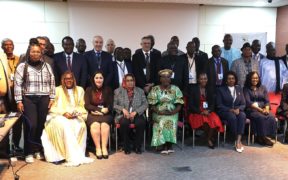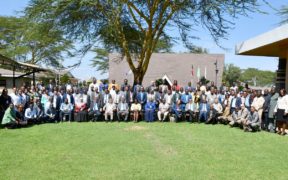Category: Thematic

The city of Casablanca in Morocco is hosting a workshop organized by the Ministerial Conference on Fisheries Cooperation Among African States Bordering the Atlantic Ocean (ATLAFCO) starting from February 27, focusing on the theme of “Accelerating the Elimination of Child Labor in the Fishing Sector in Africa.” “The main objective of this workshop is to […]

The 2nd General Congress of the African Aquaculture Network (ANAF) opened today in Naivasha, Kenya under the leadership of the African Union. This major event brings together more than 100 participants from the four corners of the continent, all committed to promoting the sustainable development of Aquaculture in Africa. ANAF, dedicated to the promotion of […]

The regional workshop on Access Agreements to Fisheries Resources of Atlantic Coastal States was held on October 25th and 26th in Abidjan, organized by the Ministerial Conference on Fisheries Cooperation among African States bordering the Atlantic Ocean. ATLAFCO. The main objective was to acquire the necessary knowledge to better defend the interests of coastal states […]

